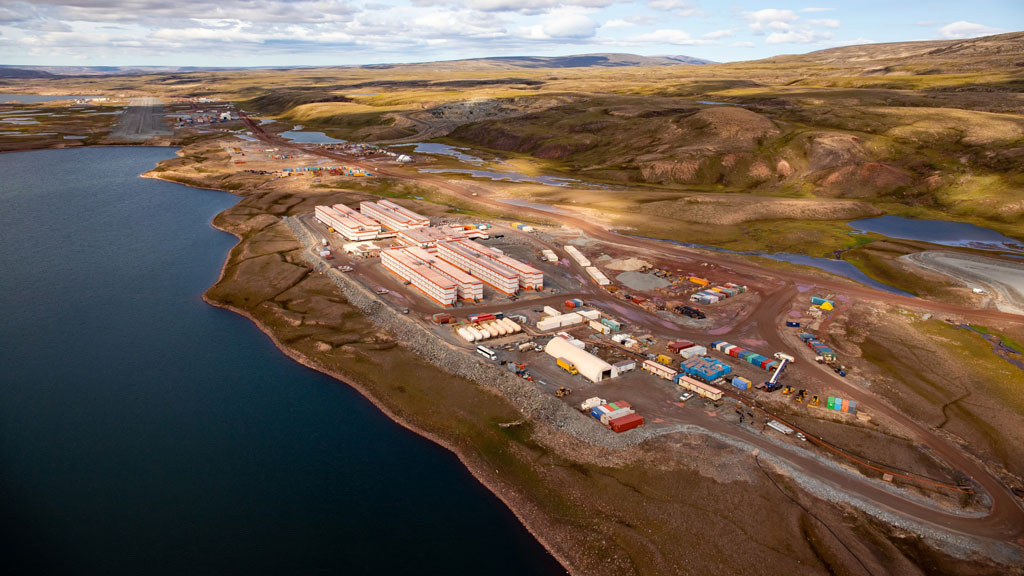Baffinland Iron Mines Corp. is working on a new proposal for its Mary River Mine in Nunavut after the federal government rejected its expansion plan in November.
The plan sought to double the shipping output of the mine and to construct a more than 100-kilometre-long railroad to accommodate the increase. With the proposal’s rejection, the immediate future of the mine is now in question.
Since 2018, the Mary River Mine has been shipping six million tonnes of ore per annum (mtpa). But with the unexpected rejection of the expansion proposal, Baffinland finds itself facing a 2023 where only 4.2 mtpa has been approved.
Thus, Baffinland has begun working on what they call a “sustaining operations proposal” to allow its current shipping levels and operations to continue.
“We are now asking Inuit to consider options for regulatory and operational stability for the current project, to give all of us an opportunity to focus on the long-term vision for Mary River,” said CEO Brian Penney in a statement to the Journal of Commerce.
In December, top Baffinland team members began a tour of five northern Nunavut communities to consult with residents on how the company’s approach to the mine could be better synergized with local needs.
“The tour is an opportunity for Inuit to share their questions, views and Inuit Qaujimajatuqangit about the Mary River project and for Baffinland to listen,” said Baffinland communications head Peter Akman.
With the mine’s current level of operations at risk, Akman emphasized the economic impact the project has brought to the region.
“Baffinland is Nunavut’s single largest contributor to the territory’s economy and currently represents 23 per cent of Nunavut’s gross domestic product,” Akman said.
He highlighted that, if it had been approved, the expansion would have provided $1.67 billion in taxes and royalties to the Government of Canada, $1.4 billion in royalties to Nunavut Tunngavik Inc. and $679 million in taxes to the Government of Nunavut.
For each of the five impacted communities, Akman said Baffinland was delivering $3 million each to construct new day care facilities, providing office and training centres with an Elder’s room, 40 new community-based trainee positions per year for three years and seven new community-based positions, among other things.
Rejection of the expansion was unexpected.
“Given the clear benefits to Inuit, Nunavut and Canada as a whole, and the fact that Baffinland high-grade ore is also the greenest path to steel production, the minister’s decision is both surprising and disappointing,” said Akman.
“Our Phase 2 proposal was based on years of in-depth study and detailed scientific analysis. We executed a new Inuit Certainty Agreement with the Qikiqtani Inuit Association (setting new standards in the Canadian Mining industry for environmental compliance, benefits, training, royalties and taxes) and we have had extensive consultations with, and made additional (environmental and benefits) commitments to stakeholders.”
In a letter announcing his rejection of the expansion, Minister of Northern Affairs Dan Vandal said he supported the Nunavut Impact Review Board’s recommendation to refuse the application amid its warnings of “potentially significant adverse impacts on vegetation and freshwater, leading to adverse socio-economic effects on Inuit harvesting, culture, land use, and food security.”
Akman noted Baffinland has long engaged in environmental impact mitigation measures to protect narwhal populations, saying the company’s marine mitigation programs are “unparalleled in the industry.”
These include the voluntary development of the Narwhal Adaptive Management Response Plan, annual monitoring programs and aerial surveys, among other measures.
But Vandal left the door open for further applications from Baffinland.
“We encourage Baffinland to continue to work with partners in establishing a positive path forward following today’s decision. This can be done by Baffinland applying for a new project to adequately consider any new proposed commitments in a public setting, providing certainty for all partners.”
For now, the priority is keeping the mine running.
“Continuing the approved trucking and shipping levels in 2023 and beyond would allow us to sustain operations, maintain important commercial relationships, continue to provide employment and deliver benefits to communities on North Baffin Island,” said Penney.
But expansion is a must for long-term operational success.
“Ultimately, Baffinland must switch to a rail operation for the economic longevity of the project.”
Follow the author on Twitter @JOC_Evan.



Recent Comments